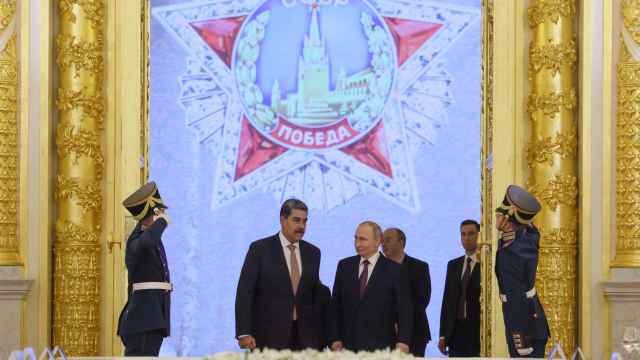Politically, 2010 will come down as the Year of the Tandem. Russia’s politics is all about the tandem.
The country does not have competing political parties or ideologies. It has competing political courts and clienteles clustered around each national leader jostling for power and its spoils and building bridgeheads for the decisive battle of 2012.
The tandem’s politics is not about expanding their support base through the power of ideas and smart policies, but about weakening the rival group through behind the scenes maneuvering, personnel reshuffles, redistribution of economic assets and television programming.
Still, the tandem’s politics confirms former U.S. House of Representatives Speaker Tip O’Neil’s maxim that all politics is local.
The key battles have been waged around local issues: Moscow fires, traffic, corruption, the Khimki Forest and environmental issues — one was saving trees, while the other was saving tigers and polar bears — and economic geography of Russia — one was developing an innovation center at Skolkovo, and the other was developing the Far East.
Foreign policy has also seen its share of tandem politics. One made progress building bridges to the West, while toying with regime change in the near abroad. The other maintained a healthy skepticism of the West, while preferring to work with leaders closer to home.
The most serious battleground is over political stability. One sees it as the ultimate good that makes social development possible. The other views it as a tool that requires periodic shakeups through free elections to force needed social changes and avoid stagnation.
One appeals to the iPad generation that values innovation, freedom and openness to the outside world. The other appeals to the television generation that values stability, security and caution with regard to foreign influences. Their public support bases diverge ever more significantly with every month of tandemocracy.
These competing visions are the stuff that make presidential campaigns and elections real. But presidential elections are also about leadership. You get the sense of who is the better leader by comparing Medvedev’s tweets in reaction to the riots in Moscow with Putin’s storming into a meeting with enraged football fans and riding a bus with them to their friend’s grave.
Therein lies the real difference between the Tweeter-in-Chief and the leader of the nation.
Vladimir Frolov is president of LEFF Group, a government-relations and PR company.
A Message from The Moscow Times:
Dear readers,
We are facing unprecedented challenges. Russia's Prosecutor General's Office has designated The Moscow Times as an "undesirable" organization, criminalizing our work and putting our staff at risk of prosecution. This follows our earlier unjust labeling as a "foreign agent."
These actions are direct attempts to silence independent journalism in Russia. The authorities claim our work "discredits the decisions of the Russian leadership." We see things differently: we strive to provide accurate, unbiased reporting on Russia.
We, the journalists of The Moscow Times, refuse to be silenced. But to continue our work, we need your help.
Your support, no matter how small, makes a world of difference. If you can, please support us monthly starting from just $2. It's quick to set up, and every contribution makes a significant impact.
By supporting The Moscow Times, you're defending open, independent journalism in the face of repression. Thank you for standing with us.
Remind me later.





